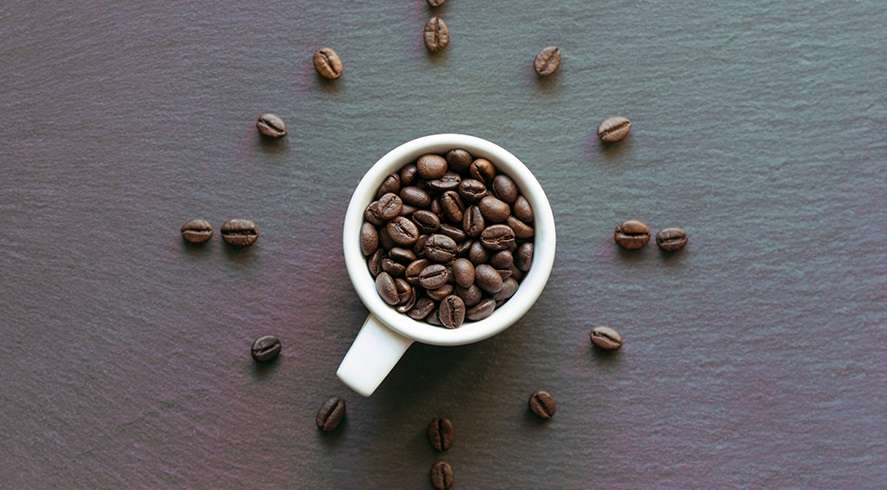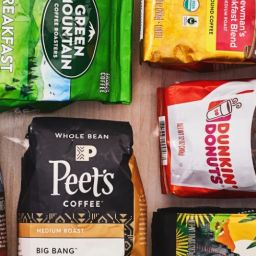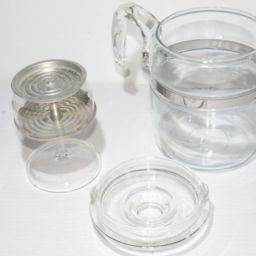
GERD, or gastroesophageal reflux disease, is a common condition where stomach acid flows back into the esophagus, causing discomfort. Enter low acid coffee, a game changer for coffee lovers with GERD. It’s specially processed to reduce the acidic compounds, offering a gentler alternative for your stomach.
Key Takeaways
- Low Acid Coffee is Kinder to Your Stomach: If regular coffee leaves you grimacing with heartburn, low acid coffee might just be your new best friend. It’s crafted to be easier on your digestive system, reducing those pesky GERD symptoms.
- Variety is the Spice of Life: From mushroom to chicory blends, there’s a world of low acid coffees out there. Each offers a unique taste without the high acidity, giving you plenty of options to explore.
- Brewing Matters: How you brew can influence your coffee’s acidity. Cold brewing, for instance, is a great way to lower acid levels, making your cup of joe smoother and more stomach-friendly.
The Science Behind Low Acid Coffee
Coffee naturally contains a variety of acids, contributing to its rich flavor but potentially troubling for GERD sufferers. Understanding these acids and how low acid coffee reduces their impact can transform your coffee experience.
Acids in Coffee
Coffee is teeming with compounds like chlorogenic, quinic, and citric acids. These contribute to the bright, tangy flavors we love but can also lead to the dreaded acid reflux. For those with GERD, these acids can irritate the esophagus, leading to discomfort.
Crafting Low Acid Coffee
So, how is low acid coffee different? It’s all in the beans and the brew. Some brands select beans naturally lower in acidity, while others employ special roasting techniques to tone down the acid levels. The goal? To retain coffee’s delightful flavors while easing off the acids that trigger GERD symptoms.
Benefits Beyond GERD
Low acid coffee isn’t just easier on the stomach; it’s also kinder to your teeth, reducing enamel erosion. Plus, it still packs the antioxidants and nutrients coffee is celebrated for, just without the acidity that can turn your coffee break into a discomfort break.
Best Low Acid Coffee Brands
Exploring the world of low acid coffee can be a revelation, especially if you’ve been steering clear of coffee due to GERD. Let’s dive into some top-notch low acid coffee brands, each with its own unique appeal.
- Lifeboost Coffee: Lifeboost Coffee stands out for its commitment to low acidity and high quality. Their beans are organically grown, ensuring you’re sipping on a cup that’s not only gentle on your stomach but also kind to the environment. Expect a smooth, flavorful brew that respects your digestive health.
- Puroast Coffee: Puroast takes pride in offering a low acid coffee that’s rich in flavor without the bitterness. Their secret lies in a unique roasting process that significantly cuts down acid levels. If you’re looking for a coffee that’s gentle on the stomach but full-bodied in taste, Puroast is worth a try.
- Trücup Coffee: Trücup offers a coffee that’s not only low in acid but also easy to love. They’ve developed a special process that reduces acids that can be tough on your stomach, making their brews a great choice for GERD sufferers. With Trücup, you don’t have to compromise on taste for the sake of comfort.
- Tyler’s No Acid Organic Coffee: For those who are extra sensitive, Tyler’s No Acid Organic Coffee is a true gem. As the name suggests, it’s virtually acid-free, offering a super smooth cup that’s easy on the esophagus and delightful on the palate. Organic and eco-friendly, it’s a guilt-free indulgence for coffee aficionados.
- HealthWise Coffee: HealthWise Coffee offers a scientifically crafted brew designed to minimize acid content without sacrificing flavor. Ideal for those with GERD or other digestive sensitivities, this brand ensures you can still enjoy a robust cup of coffee without the usual side effects.
Brewing Methods and Other Tips
Brewing your coffee right can make all the difference, especially if you’re trying to sidestep the acid. Here are some methods and tips to keep your coffee enjoyable and your stomach happy.
Cold Brew: Cold brewing is a fantastic way to reduce the acidity in your coffee. This method involves steeping coffee grounds in cold water for an extended period, usually 12-24 hours. The result? A smooth, mellow coffee that’s easy on the stomach but still rich in flavor.
Paper Filters: Using a paper filter can also help cut down on acidity. Paper filters trap more of the coffee’s natural oils and acids, resulting in a cleaner, brighter cup that’s gentler on your digestive system.
Avoid Empty Stomach Coffee: Drinking coffee on an empty stomach can increase acidity and irritate your stomach lining. Have a bite before your coffee to cushion the impact and maintain a happier tummy.
Alternatives to Traditional Coffee
If you’re looking for a coffee alternative that’s kind to your GERD, there are exciting options to explore.
Mushroom Coffee: Mushroom coffee mixes coffee with mushroom extracts, reducing acidity while offering a unique flavor profile and potential health benefits. It’s a trendy choice for those seeking a wellness boost along with their caffeine kick.
Chicory Coffee: Chicory coffee, made from the roasted roots of the chicory plant, offers a coffee-like experience without the caffeine and acidity. It’s a great option if you’re looking to cut back on both caffeine and acid.
Decaf Options: Decaffeinated coffee might have less caffeine, but it’s not always low in acid. However, choosing a decaf that’s specifically marked as low acid can provide a gentler alternative for those looking to reduce their caffeine intake without aggravating GERD.
Additives: Consider additives like a pinch of baking soda to neutralize the coffee’s acidity. It’s a simple trick that can make a significant difference in how your coffee interacts with your stomach.
FAQs
Can Decaf Coffee Be a Low Acid Option?
Decaf coffee has less caffeine, but that doesn’t automatically make it low in acid. While caffeine can contribute to acid production, other compounds in coffee also affect acidity. So, if you’re going for decaf, look specifically for brands that tout a low acid profile.
How Do Brewing Methods Affect Acidity?
Brewing methods can significantly impact the acidity in your coffee. Cold brewing, for example, tends to extract fewer acidic compounds, making for a smoother cup. Using paper filters can also reduce acid levels compared to metal filters that let more oils and acids through.
Are There Natural Ways to Reduce Coffee’s Acidity?
Yes, there are! Adding a pinch of baking soda to your coffee grounds can neutralize some of the acids. Also, brewing with eggshells (rich in calcium carbonate) can help reduce acidity, offering a more stomach-friendly cup.
Final Thoughts
Choosing the right coffee when you have GERD isn’t just about flavor; it’s about comfort and health. Low acid coffee can be a game-changer, offering the joy of coffee without the usual discomfort. However, individual responses can vary, so it’s crucial to find what works best for you.
Remember, while low acid coffee can be a great option, it’s one piece of the puzzle in managing GERD. Combining dietary adjustments with lifestyle changes and consulting healthcare professionals for personalized advice can provide a comprehensive approach to enjoying coffee without compromising your well-being.









